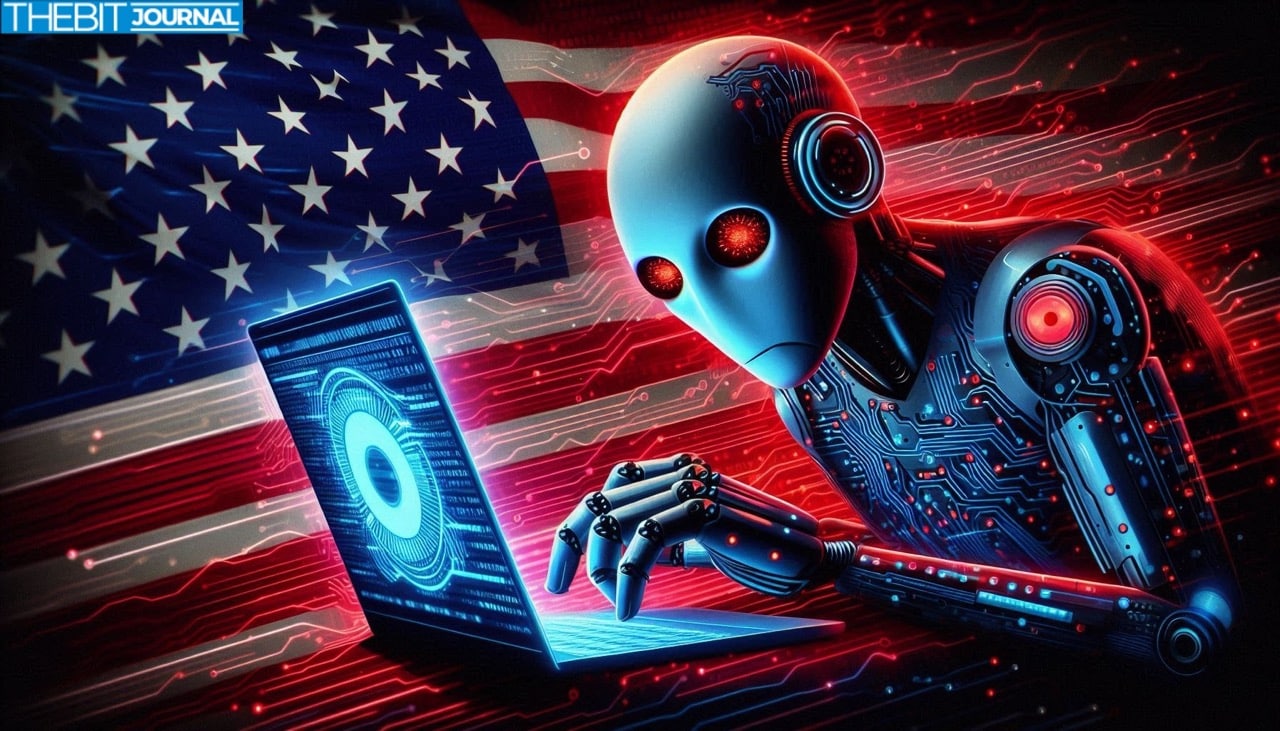As global tensions between the U.S. and China escalate over artificial intelligence, the Trump administration is reportedly weighing a ban on Chinese AI startup DeepSeek, citing national security risks. Sources familiar with the matter say the U.S. may restrict the company’s access to American technology and even block its services within the country.
DeepSeek AI, which stunned the AI world in January by releasing its powerful DeepSeek-V3 chatbot on a mere $6 million budget, is now under intense scrutiny. U.S. officials allegedly fear its low-cost, high-performing model could signal China’s rapid advancement in AI, an area that also affects the future of crypto security and blockchain-based AI integration.
A Battle Brewing Over Data, Chips, and Influence
At the core of the backlash is a damning report released on April 16 by the U.S. House Select Committee on the Chinese Communist Party. The investigation accuses DeepSeek of leveraging sensitive American user data, embedding CCP-aligned narratives into its AI model, and training it with datasets potentially stolen from U.S. platforms. The report also suggests that DeepSeek’s model was developed using as many as 60,000 Nvidia chips—20,000 of which were reportedly under export restrictions.
Singaporean authorities arrested three individuals in February, allegedly involved in illegally exporting restricted Nvidia chips, transactions suspected of benefiting DeepSeek AI. This has led to a broader investigation into Nvidia’s chip sales in Asia, including requests from U.S. lawmakers for detailed information about high-volume customers in 11 countries, including Malaysia and Singapore.
“We now know this tool exploited U.S. AI models and reportedly used advanced Nvidia chips that should never have ended up in CCP hands,” said Committee Chair John Moolenaar. “American innovation should never be the engine of our adversaries’ ambitions.”
Nvidia Pushes Back, But Crypto Feels the Heat
Nvidia, whose chips are critical to both AI and blockchain applications, maintains that it has complied with all export regulations. A company spokesperson emphasized that billing addresses in Singapore often represent subsidiaries of U.S. clients, and the actual shipments frequently go to the United States or Taiwan, not to China.

Still, the controversy places Nvidia in a vulnerable position, especially as its GPUs power not only AI applications but also crypto mining and decentralized computation infrastructures. If export restrictions tighten, blockchain projects relying on high-performance GPUs could face higher costs and limited access to compute resources.
Europe Joins the Crackdown: Global Trust Eroding
DeepSeek’s problems aren’t limited to Washington. Italy’s data protection agency blocked access to the company’s chatbot earlier this year over alleged violations of European privacy standards. France, Ireland, and South Korea have since launched their own investigations into DeepSeek’s data practices.
According to European regulators, the platform failed to clearly outline how it collects, stores, and uses personal data, raising further concerns about potential misuse and state surveillance. These international developments signal a growing skepticism of Chinese AI globally, echoing the scrutiny already applied to TikTok and Huawei.
Why This Matters for Blockchain
Though not a crypto firm, DeepSeek AI case is triggering ripple effects across the blockchain ecosystem. AI models like DeepSeek’s are increasingly being integrated into decentralized applications (dApps), smart contract automation, and generative content layers on blockchain platforms. Concerns about compromised models could threaten the credibility of crypto protocols using third-party AI services.
Additionally, the controversy revives fears over centralized state control, particularly in digital ecosystems. For example, if China-linked AI is embedded into decentralized platforms without sufficient vetting, it could lead to unintended vulnerabilities, manipulation, or surveillance within Web3 applications.
Some crypto developers have already begun auditing third-party models used in prediction markets, decentralized identity tools, and crypto trading bots to ensure that none of them rely on tainted or unauthorized datasets.

As artificial intelligence and blockchain increasingly intersect, especially in automated finance and synthetic content generation, the global crypto industry may need to rethink how it sources its AI components, verifies their training data, and ensures compliance with international law.
Conclusion: The Stakes Are Higher Than Chips
The DeepSeek AI saga isn’t just about a Chinese AI startup, it’s about who controls the next era of digital infrastructure. From GPU supply chains to decentralized platforms, the confrontation between the U.S. and China has now touched nearly every technological frontier.
For the crypto industry, it’s a wake-up call. As AI models become intertwined with smart contracts, trading strategies, and user data processing, Web3 builders must now consider national security implications alongside decentralization ideals. Because in a world where code is power, the provenance of that code matters more than ever.
FAQs
Is DeepSeek officially banned in the U.S.?
Not yet. The administration is reportedly considering sanctions, but no formal actions have been announced as of now.
What is DeepSeek accused of?
DeepSeek is accused of using unauthorized U.S. data, aligning AI responses with CCP narratives, and violating export controls by acquiring restricted Nvidia chips.
How does this affect crypto?
Blockchain and AI integrations could be at risk if tainted models or compromised AI data make their way into decentralized applications.
Why is Nvidia involved?
Nvidia chips are essential for training large AI models. Investigators are checking whether DeepSeek obtained them illegally or through export loopholes.
Will other countries follow with similar sanctions?
It’s possible. Several nations, including Italy and France, are already investigating DeepSeek AI for data privacy issues.
Glossary
DeepSeek: A Chinese AI startup that gained attention for its low-cost, high-performance chatbot model.
Nvidia: A U.S.-based tech firm known for its high-performance GPUs used in AI and crypto mining.
GPU (Graphics Processing Unit): Hardware used in both AI model training and crypto mining.
AI Model Training: The process of teaching an AI system how to make predictions or generate content based on large data sets.
Export Controls: Regulations that limit the sale of certain technologies to foreign countries.
Web3: A decentralized internet paradigm built on blockchain technology.
Smart Contracts: Self-executing contracts with the terms written into code, used widely in crypto platforms.
Decentralized Applications (dApps): Apps built on blockchain platforms that run without centralized control.
References
U.S. House Select Committee on the CCP
Disclaimer:
This article is for informational purposes only and does not constitute investment or legal advice. The information is based on publicly available data as of the time of writing. Readers are encouraged to consult professional advisors and monitor official regulatory sources for updates.


























